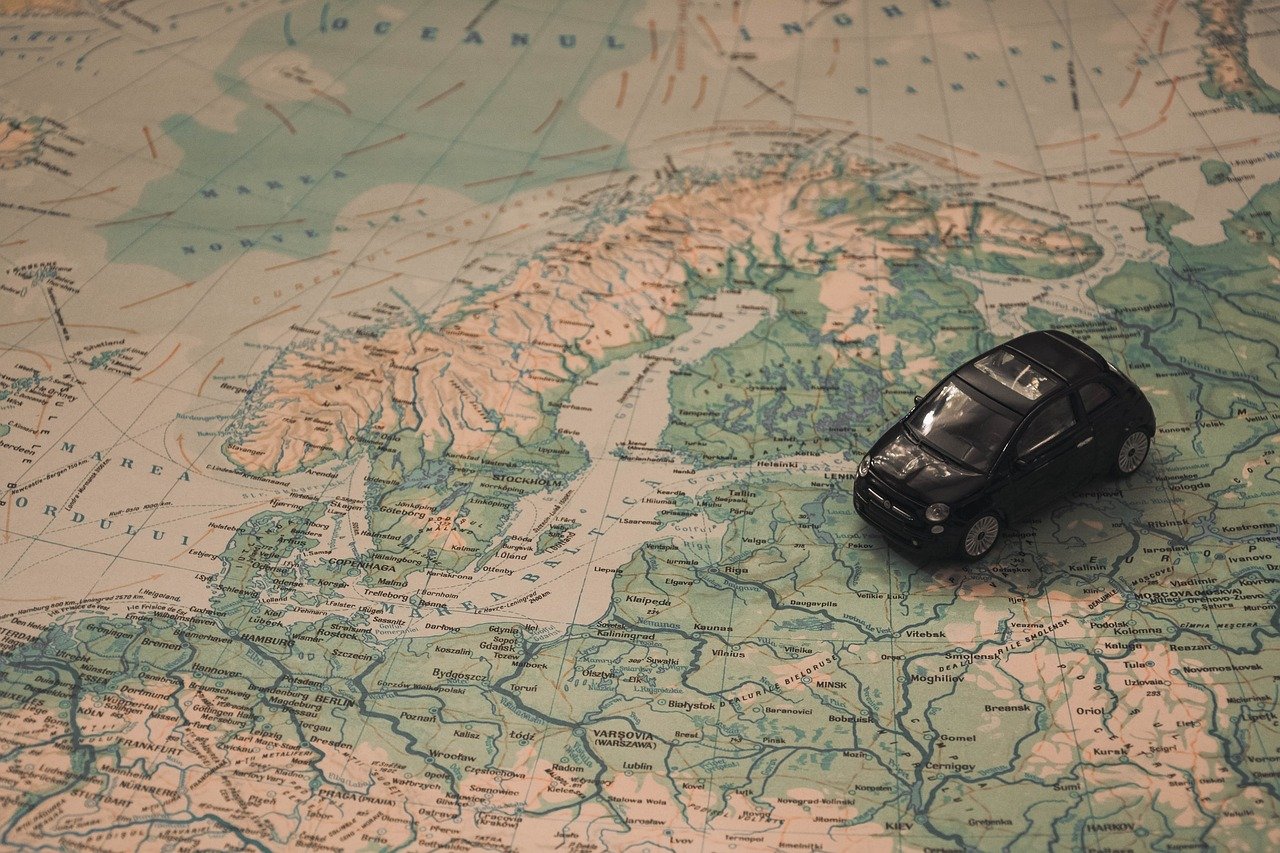I had just returned from my first round-the-world trip just a few days prior. I ended up having lunch with a friend; while we talked about traveling, she asked me: “What do you think? Have you seen A Map for Saturday?”
The phrase was unfamiliar to me, and so I replied, “What are you talking about?”
“It’s actually the world’s best travel movie; you can purchase it from this website, I think,” my friend replied, “It’s documentary.”
I immediately registered at home and looked it up online.

Brook Silva Braga’s A Year Around the World is an adventure film about an 11-month sebatical following the traveller as he leaves his job, picks up his sack, and begins documenting travel through mainland Australia, Asia, Europe and South America. From all films that I have watched, it was the only one that captured perfectly the highest and lowest moments of long-term fun-travel adventures – an offensive wandering-cum-appreciating loneliness, fleeting friendships, and all these almost perpetually forgotten ones. It echoed in tune with my own backpacker’s journey.
I have watched this film with a number of people, shared it with many backpackers as a present, and kept it stored for myself because I have been watching it since day one.
In fact, I watched it again on my “last day” of travels in 2013, thinking my traveling days were over. A Map for Saturday is—and is even more clearly recognized later on in life when the best of so many aspects of an activity propel the equally defining consequences: a spirit for adventurous travel.
By the time this film reached its tenth anniversary celebration, I would sit next to Brook the friend and reflect on how much this movie keeps going besides being such a hit event in his “travel-based” life.
From Employee to Wanderer
“Ten years, all already. It’s been a decade since the film A Map for Saturday was released, and I think and I am just going to not do it; can you talk a little bit about you from that time? ;”
“Just an ordinary guy working at HBO when I quit the job to travel the world for a year and took a video camera with me and made a documentary for backpackers. I met travelers from all over the world and compiled their encounter of living on the road.”
I returned home dead broke but with all these experiences-filmed it-which MTV bought from me, and then my path took a sharp turn. I was taking off with this movie, and this was just one of my traveling behaviors. And my travel made my further movie production.
Origin of the Journey
“Well, what actually inspired you to take that first trip?”
“At 24, HBO sent me on a trip to the Philippines to write about Manny Pacquiao. I went there and on the way back stopped off in Thailand and met a couple of guys from Belfast. They were traveling around the world. That was such an exciting concept-the freedom and adventure. A week maybe later, I thought I wanted to do that.”
“I think if you ever go to Thailand or are backpacking through Thailand, the traveler bug-I don’t know- just hits you.”
“That’s true. From there, I started planning and saving money; the day I left was eight months later, 15,000 dollar budget, round-the-world tickets, and awesome frequent flyer miles.”
Such a Time as That They Have to Go
Nomadic Matt: How were the people around you when you usually told them you were quitting that job? I mean, going away to travel just wasn’t heard of in the mid-2000s.
Brook: Confusion. I was a successful and ambitious young guy whom nobody ever believed was even thinking of quitting. Everyone believed I was resigning from my own future. For me, ambition was not about climbing those corporate ladders, but embracing life in all its fullness and excitement. So traveling was just an aspect of my dream.
Luckily, the travel bug bit my parents when they were young, so they were incredibly understanding.
Shooting the Documentary
Nomadic Matt: What made you think of documenting the event in the first place?
Brook: Filming made me feel less like throwing away my career. I had this interesting idea of capturing the essence of backpacking and the people I met while on the road. It also kept me connected to the rich experience-an experience where the end is the beginning of a Map for Saturday.
Indulgence in Reflection
Nomadic Matt: When it comes to the movie, and the trip, ten years of it now, what do you think?
Brook: Ever since our journey occurred, the sharp edges have mellowed into only the memory of magic. In the absolute most impactful ways, it changed who I am. I was much less about the career after the trip-the trip set me to seriously experience life and for the new possibilities to sink in, even married the woman who shares a remarkable match of values with me now.
As far as the movie, every couple years, if I can, I still view the movie-basically just to be proud of it. It is a very specific view of that time. It was going to grow well with getting older-which it has.
Power of Honesty in Storytelling
Nomadic Matt: Why do you think people can connect with A Map for Saturday on such a deep level?
Brook: It’s the honesty. It’s a very accurate portrayal of travel. Most travel literature focuses on destinations and attractions, but for me, travel is more about the journey itself-the real highs and lows of backpacking. I want to put into perspective real episodes of monotony, loneliness, and annoyance. It resonated with people who trekked that path.
Heed one of the movie’s major themes-youth is ephemeral. You see these travelers living out their imagined lives, and that gives you a moment of self-reflection on your own existence, and you think, ‘Is this how I wanted to live’?
These Days vs. In Yore: Travel
Nomadic Matt: Experiences that grew on you in travel arrangements as time went on, in general?
Brook: Travel now is less, and long journeys are not worth it nowadays. It is usually only 1 or 2 days with the wife. There’s an overload of ease somehow having everything in your head, through your phone, and through apps. But sometimes that very ease removes adventure: the old way; you sit down without all that tech hassle, after all, old school feels quite a lot more rewarding.
Nomadic Matt: Do you keep in touch with anyone from the movie?
Brook: Oh, yes! I have kept in contact with some of my friends from the movie till now. They have got married now. They have children, and we met each other two or three times in total. Social media made it all easier, but even now those e-mails from the actual old school days, remember sending to each other.
Family travel, ahoy
Nomadic Matt: So now you’re married, with a kid. How does that change your travel?
Brook: I think it’s fantastic to travel with a child. Everything seems new again, as if it’s rediscovering the world through the eyes of my child. Just traveled with the family to London and then to Egypt; it was such an amazing experience. People really love kids travel due to the reactions I recently had with them, which makes my adventure better, as usually when traveling, it’s always done alone.
The Advent of Long-Term Travel
Nomadic Matt: It’s almost like there’s been some serious growth in long-term traveling. Why do you think that is?
Brook: I think long-term travel has always been there, but it’s more visible now. It is a good trend anyway. Traveling longer period of times is allowing you to make connections with places and people in a way where you won’t be rushed.
Ultimately, I think the best travel experiences don’t happen when you are so focused on the sightseeing, but through lived experience-just being there and really appreciating the trip. A Map for Saturday captured this, and so many people still identify with it today.







Leave a Reply